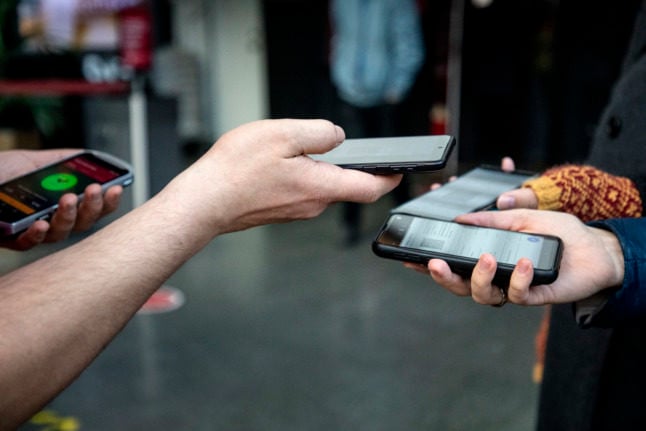The e-Health Agency is responsible for issuing Swedish vaccine passes, which have been required at some indoor events with over 100 guests since December 1st.
The agency’s spokesperson Jan Pettersson told newswire TT that there are a number of possible explanations for the high number of issued vaccine passes compared to how many people have received one.
“Some people may have ordered a vaccine pass earlier during the summer, which may no longer be valid. Or maybe they just forgot where they saved it. You can download a pass really quickly,” he said.
Passes issued before October 1st were only valid for three months – since then, they have been valid for six months.
Downloading a vaccine pass from covidbevis.se is usually quick and easy, unless you don’t have a Swedish e-ID like BankID, meaning you have to apply via post.
“Right now there’s extremely high pressure. You’ll have to wait at least a few weeks,” warned Pettersson.
Some groups are also still excluded from the vaccine pass system, despite being fully vaccinated. This includes people who were vaccinated abroad, as well as people vaccinated in Sweden who were vaccinated under a temporary reservnummer.
The Local has covered this issue in a series of articles since the passes launched on July 1st, although at the time Sweden only used them for exemptions to border restrictions.
In October the government ordered the e-Health Agency to develop a system by the end of 2021 that would enable them to issue the Covid vaccine passes to people who are based in Sweden and are fully vaccinated, but are currently unable to get a certificate to prove it.
- READ ALSO: Sweden ‘in violation’ of EU law for failing to issue Covid passes to thousands of foreign residents
A spokesperson for the Health Ministry told The Local at the end of November that the e-Health Agency now has the “technical solution” for this ready, but authorities are still working on ironing out legal details which are needed for healthcare administrators to report vaccines for these groups to the right databases.
“The work is ongoing with the goal of being able to start using the solution from January 1st 2022,” the spokesperson confirmed in an email.



 Please whitelist us to continue reading.
Please whitelist us to continue reading.
Member comments